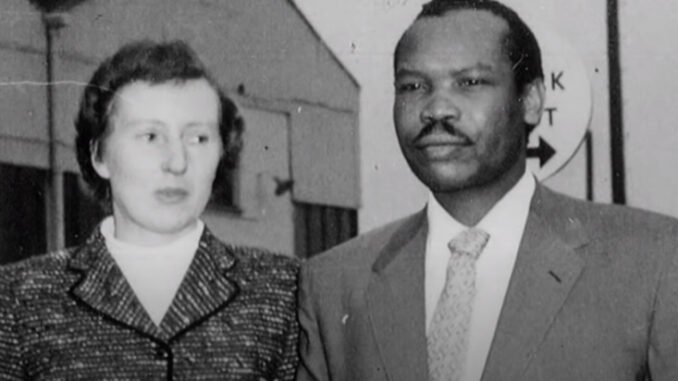
The year was 1947, this was a time when interracial marriages were still taboo and even illegal in some parts of the world. An African prince by the name of Seretse Khama met Ruth Williams, an English clerk at Lloyd’s, at a dance organized by the London Missionary Society. Both immediately fell in love with each other as they had plenty of things in common such as their love for jazz music. But their growing relationship soon became a center point of turbulent political conversations, diplomatic issues, and cultural irk.
Racism in both cultures
Both Khama and Williams did not receive significant public support from their own people. Williams’ parents didn’t approve of their relationship on the hand that Khama was black and Khama’s associates and family saw Williams unfit for African royalty since she’s just a clerk and a white woman.
How governments viewed their relationship
At the time Khama and Williams were pushing for a wedding, diplomatic relationship between Britain and South Africa was vital for Britain’s defense program as the Cold War was brewing. Particularly for its development of atomic weapons, which Uranium was to be supplied cheaply by South Africa.
The plans of Khama and Williams to marry caused great controversy with the officials of Bechuanaland and the government of South Africa, which had recently instituted the system of racial segregation known as apartheid.
Bechuanaland was a British colony and protectorate in South Africa of which Khama was a prince. The elders of Bechuanaland found it culturally and politically necessary for the prince to marry someone who is a native, while South African officials, who at that time were predominantly white, found their relationship a nauseating distraction to the point that they demanded the British government to stop their marriage or else they wouldn’t supply them with the Uranium they need.
Thousands of miles apart
The British government tried to intervene but nevertheless their love was strong and they still married each other on September 29, 1948. The South African politicians view this as a threat to the apartheid, and eventually both Khama and Williams were banned in South Africa.
A year later, Williams and Khama arrived to Bechuanaland in August of 1949. Their marriage was perceived to be positive by the people and public support grew for Williams as the “White Queen” or “Lady Khama”.
But this new found happiness would be short lived. Seretse was called to London in March 1950 for discussions with British officials, but just as Ruth has expected, it was a trick by the British government to covertly exile Seretse. He was prevented from returning home as the British wanted to stay in good relations with South Africa. For almost a year, Lady Khama became lonely with only a few trusted companions and her infant daughter.
Their happy ending
In 1951, Ruth joined Seretse in exile in England living in Croydon. At this time, Ruth came into terms with her parents when her father has finally accepted their marriage. Public support grew once more as their their exile was seen as disreputable by prominent government figures and the British public opinion was mostly in favor of the Khamas and against the government.
The Khamas did experience bouts of depression during their exile. But in 1956, both were allowed to return to Bechuanaland as private citizens, after Seretse had renounced the tribal throne. He would later enter into politics again winning the 1965 general election of Bechuanaland. Seretse pushed for independence, which was granted in 1966 becoming the first president of independent Botswana and Lady Khama as the first lady. This affair would continue for four consecutive terms from 1966 to 1980.
Their marriage produced four beautiful kids of which two of their sons have become prominent politicians in Botswana as well. Seretse died on 1980 at the age of 59 and Ruth remained in Botswana dedicating her time and efforts to charitable causes and spending time with her children and grandchildren until her death in 2002. Sertse and Ruth were known to be inseparable all through out their marriage.
